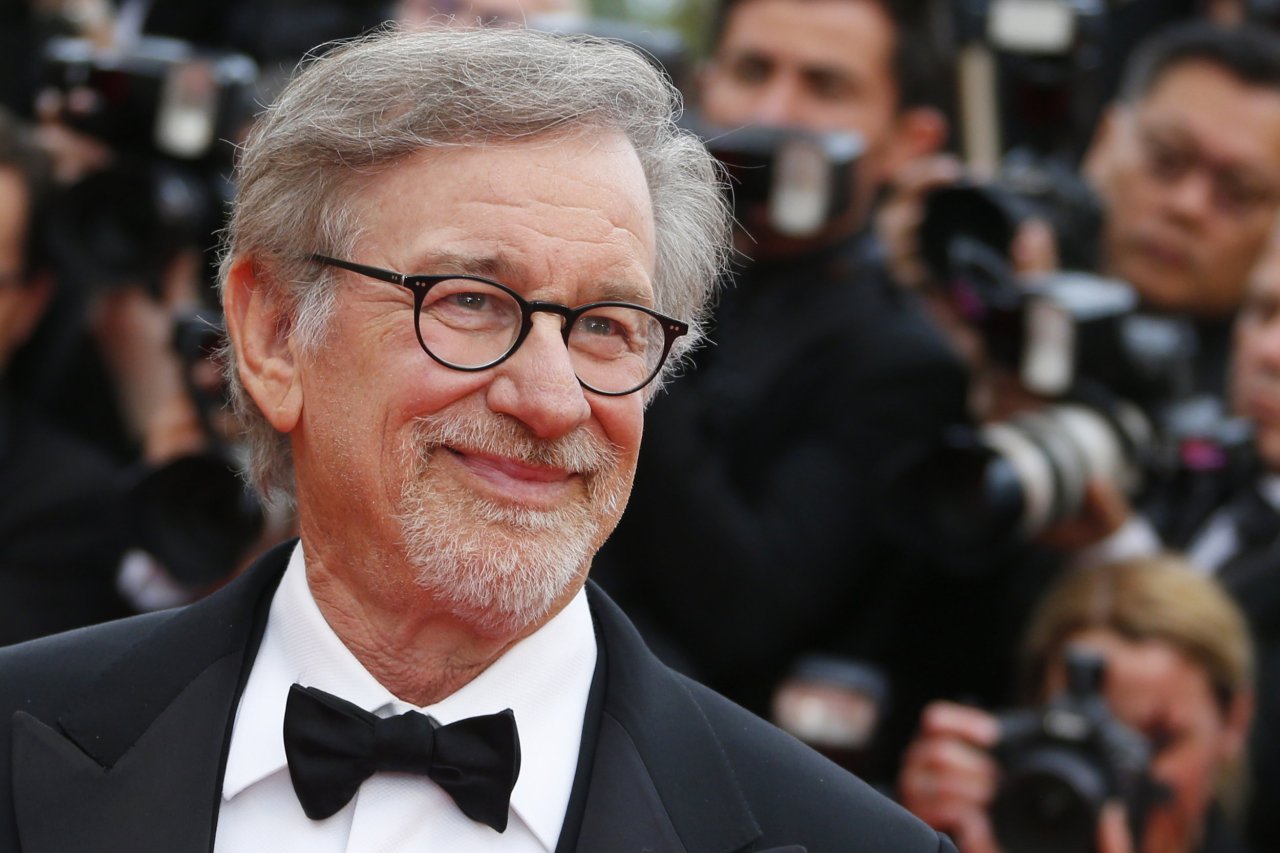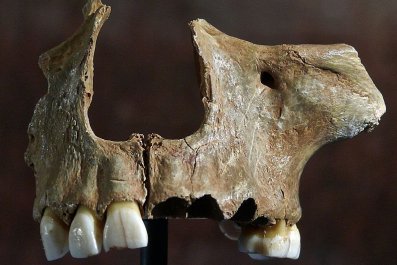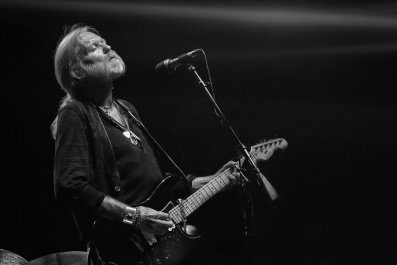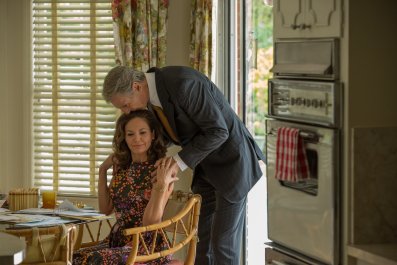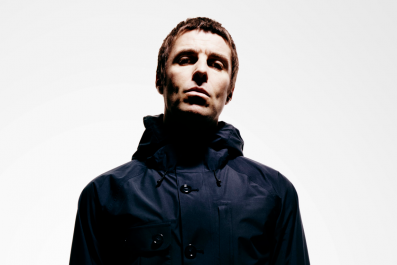It's almost hard to believe how successful Steven Spielberg has been since he started directing TV movies for Universal in the 1960s. For most artists, success comes in waves, but for Spielberg, it has continued unabated, with very few hiccups, for nearly half a century. Whenever he would try something that didn't quite work out, he'd bounce back with a smash hit almost immediately. Spielberg has ridden his preternatural talent to a career that has brought in nearly $10 billion at the box office, around $3 billion more than his nearest competitor. He's the ideal of a Hollywood director.
Related: Can "It" rescue Hollywood from its disappointing summer box office?
On October 7, HBO will premiere a sprawling, two-and-a-half hour documentary about the director's life and work, featuring interviews with Martin Scorsese, Leonardo DiCaprio, George Lucas, Francis Ford Coppola, Brian de Palma, J.J. Abrams, Tom Hanks and a host of other influential figures who played a role in the career of Spielberg, who was also interviewed at length. Here are nine things the documentary, titled Spielberg, taught us about the legendary filmmaker.
1. He Almost Gave Up His Dream After Seeing Lawrence of Arabia
Spielberg started making films when he was only 13 years old, but he almost decided to call it quits after seeing Lawrence of Arabia in theaters three years later. "The bar was too high," he said in Spielberg. "I had such a profound reaction to that film."
Though intimidated at first, the 16-year-old Spielberg kept returning to the theater to see Lawrence of Arabia over and over again. He wanted to understand how director David Lean was able to craft such a visually stunning, emotionally impactful opus. "This was going to be the rest of my life," Spielberg realized.
2. He Was Rejected From USC Film School, So He (Allegedly) Set Up an Office in Universal Without Telling Anyone and Started Making Films
As Spielberg tells it, he took a bus tour of Universal Studios, and when they gave the tour group a bathroom break, he just never came back. Legend has it that he took an office for himself in one of the buildings, put his name on it and no one ever bothered him. He would sneak onto sets, ask questions and soak up as much information as he could about how to make films. Eventually, he started making his own, with the tastes of the studio executives in mind. It led to a seven-year contract from Universal's Sid Sheinberg to direct TV. "I had a very strong feeling that this was not your average young filmmaker," Sheinberg said.
Spielberg's relationship with Sheinberg didn't end there. In 1982, Sheinberg gave Spielberg a book called Shindler's Ark, which he suggested Spielberg adapt into a film.
3. George Lucas Was Skeptical of Spielberg Until He Saw His 1971 Film Duel
While at Universal, Spielberg was considered a young prodigy, but some of the rougher up-and-coming filmmakers like Lucas and Coppola thought he was a little too flashy, a little too Hollywood. One night, while partying at Coppola's house, Lucas snuck away to see Duel. He planned to watch only the first 30 minutes, but he ended up watching the entire film. "I came down to Francis's and I said, 'This guy is amazing. You've really got to look at this film.'"
4. Jaws Was Supposed to Feature Way More Shots of the Shark
Filming Jaws was a disaster. It was the first major motion picture to be shot on the water, which caused plenty of issues. The production lasted far longer than scheduled. There were also issues with the shark, which prevented it from being used as much as the script called for. While it was under repair, Spielberg and the crew were forced to find ways to imply a sense of the shark without actually showing it. "The barrels were a godsend," Spielberg said. "What you don't see is generally scarier than what you do see."
Despite the production trouble, the film was a breakthrough success for Spielberg, and at that time it became the highest-grossing film of all time. In the documentary, Spielberg remembers driving around town on opening night with director Martin Scorsese, looking at all the lines around the block and realizing that he had himself a filmmaking career.
5. Spielberg Was the Only Other Filmmaker to Believe in Star Wars
A tight-knit unit of filmmakers formed between Spielberg, Lucas, Coppola, Scorsese and de Palma. They hung out together, challenged each other, consulted each other and together would revolutionize the film industry throughout the 1970s and beyond. When Lucas finished a rough mock-up of Star Wars, he showed it to the group.
"It was basically a children's film," he said. "It wasn't what the other friends of mine would think of as something worthwhile. Steven was the one person who was really enthusiastic about it. He said it was going to be a huge smash."
It was de Palma, however, who came up with the idea for the film's iconic scrolling prologue. After de Palma "went off" on Lucas for the film's lack of context, he said it needed, as Spielberg remembers, "an old-fashioned movie that starts with a forward, where words come on the screen and travel up it and tell you what the hell you're looking at and why you're in the theater and what the mythology is."
6. Studios Initially Weren't Interested in Indiana Jones
Looking to bounce back from his 1979 comedic disaster 1941, Spielberg jumped at the chance to helm Lucas's new project about an archaeologist who hunts for supernatural artifacts. Getting it made wasn't so easy, though. Every studio the duo went to turned them away because of Spielberg's tendency to go over budget, with some suggesting they would do the film if Lucas could find another director. Spielberg promised his friend he would be more economical, and also that if the film was a big hit, he'd direct two more. "It was a great collaboration," Spielberg said.
7. The Original Idea for E.T. Didn't Include an Alien
"Originally my idea for E.T. didn't include an extraterrestrial," Spielberg said. "It was going to be about how divorce affects childhood and how it kind of traumatizes children."
As the documentary explores at great length, Spielberg was himself a child of divorce. It became a topic that appeared in several of his films, many of which revolved around children.
"The overall theme was going to be about how to fill the heart of a lonely child," he said of E.T. "What extraordinary event would it take to fill Elliott's heart after losing his dad? It would take something as extraordinary as an extraterrestrial coming into his life."
8. Spielberg didn't initially think CGI would be necessary for Jurassic Park
Producer Kathleen Kennedy says in the documentary that Spielberg told her he wanted 30-foot dinosaurs on set that could run and that the actors could interface with. She talked to every expert she could find, and they all said that the dinosaurs were no problem, but getting them to run would be impossible. Enter computer technology and the beginning of the CGI era. "This is the future," Spielberg said of seeing a demonstration of the technology. "I could not believe my eyes."
9. Spielberg considers War of the Worlds his statement on 9/11
"The movie that I made that was a real statement about 9/11 was War of the Worlds. It imagined what would really happen if we were invaded and showed that everything that we thought made us invulnerable to invasion was all wrong."



